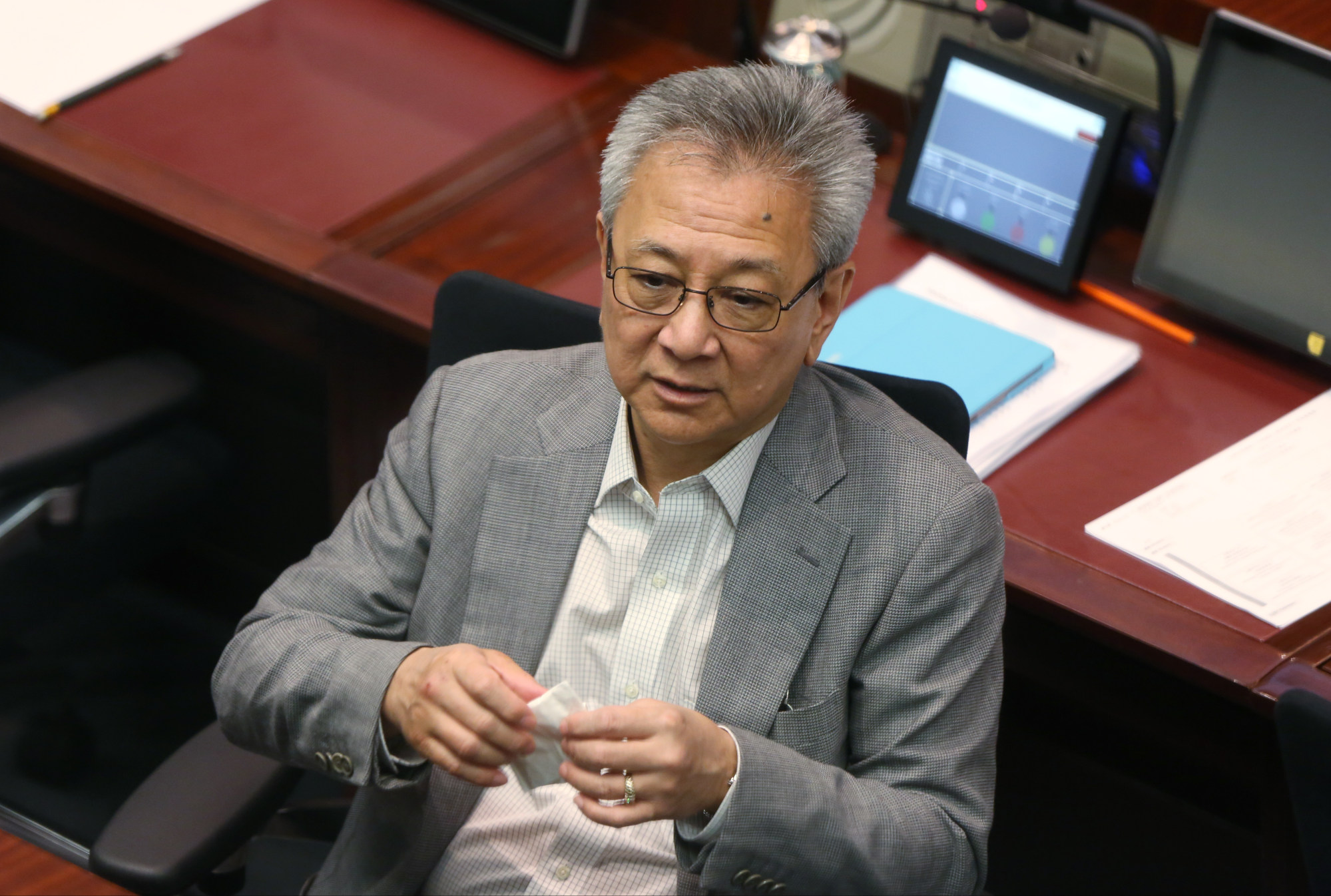
Hong Kong’s logistics sector eyes smart digital technology to maintain city’s stature as international trading centre
- Sector needs more smart technology to thrive, experts say ahead of annual Asian Logistics, Maritime and Aviation Conference
- Chief Executive John Lee highlighted logistics in his recent policy address, saying it is ‘vital to our status as an international trade centre’
Hong Kong’s logistics industry needs to adopt more smart, digital technology to thrive despite challenges and help the city retain its position as a premiere international trading centre, experts said ahead of the annual Asian Logistics, Maritime and Aviation Conference (ALMAC) kicking off on November 21.
Hong Kong is a free port characterised by fast customs clearance, high efficiency and strong international connectivity, Legislative Council member Frankie Yick Chi-ming said at a press event on Monday introducing the conference. “That is why cargo ships will berth in Hong Kong even if they know we are more expensive than other nearby ports,” he said.
However, the logistics industry in Hong Kong faces high costs for both land and human resources, said Yick, who represents the transport constituency. To maintain Hong Kong’s position as an international logistics hub, “we need to become more smart and digitalised”, he said.

In an action plan for logistics development, to be published later this year, the government will help formulate strategies and action measures to realise smart development, modernisation, sustainability and internationalisation “with a view to promoting high quality and development of the logistics industry”, Lee said in the policy address.
In the first phase, the government said it will promote upgrades to capture advances in smart logistics and develop an information platform, which will facilitate the interconnection of local logistics data to smoothe the flow of goods and information across the Greater Bay Area.
Hong Kong plans to set up a data platform that will connect key transport hubs, such as the city’s airport and commercial docks, to enable better information flow, with a minister saying “all essential data” will ultimately be shared on a daily basis with stakeholders across the border.
With the government’s pledges to strengthen Hong Kong’s role as an international maritime centre and aviation hub, ALMAC, jointly organised by the Hong Kong Trade Development Council (HKTDC) and the government, will help the industry “explore new opportunities and develop cooperation”, said Patrick Lau, HKTDC’s deputy executive director.
The conference, with the theme of “Future-proofing supply chains: diversification, decarbonisation and digitalisation”, will focus on adopting strategies to address global trade changes and uncertainties, promote carbon reduction, facilitate sustainable development and globally showcase Hong Kong’s advantages, the organisers said.
“This is the first time for us to talk about the future of the supply chain in the post-pandemic era”, Lau said. “We had expected the world would fully recover to what it was after Covid-19, but as economic uncertainties and geopolitical tensions emerged, it’s time to rethink the new landscape of logistics.”
The conference, which will be held on November 21 and 22, is expected to draw about 2,000 industry players. Representatives from logistics companies including FedEx, DHL and UPS are on the speakers list.
Hong Kong’s Transport and Logistics Bureau issued a blueprint for logistics development last week, saying that the city needs efficient and cost-effective transport, as well as sustainable cross-border e-commerce.
“If Hong Kong can incorporate the action plan with better strategies on digitalisation, its position as an international hub for maritime and aviation can maintain for many years in the foreseeable future,” Lau said.

